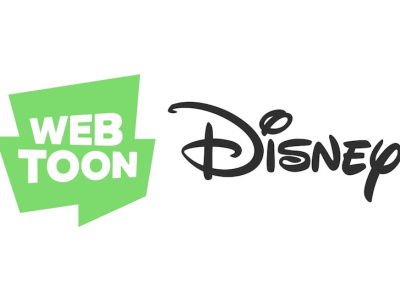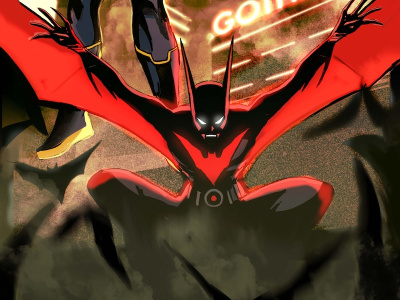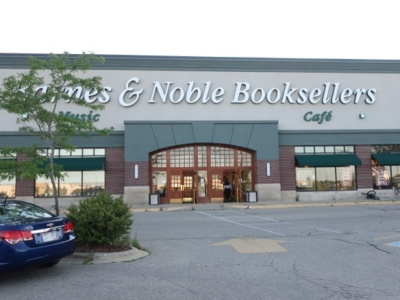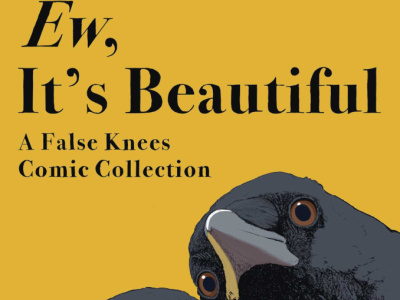ICv2 recently spoke with Dark Horse founder Mike Richardson. In Part 2, we talk about Dark Horse's role in bringing manga titles to the States and its long-standing relationships with top creators. In Part 3 we talk about Webcomics, comic ratings, and plans for 2008. In Part 1 we talked about the state of the comics and graphic novel market, Dark Horse's history with licensed comics, and the new trend toward omnibus editions.
Let's talk about your product mix. Dark Horse was one of the pioneers in manga--one of the first American publishers to release manga titles in the States. Now it's obviously very competitive. There are Japanese companies with operations here in the States and in other ways the flow of intellectual property has probably become harder for a publisher like Dark Horse to get. What's your feeling about Dark Horse's role in the future of the manga market?
It's going to be very strong. I've been going to
We've been very successful with it, and people have noticed that in
Even before shojo took off the way it did, we went hard after titles like Fruits Basket, which I pursued almost from the beginning. We didn't get them because many publishers in
Of course we now have several shojo titles that are doing very well. We've just signed a deal with Clamp and that's a huge arrangement for us. Oh My Goddess! is the longest running series in
You've been watching the manga business for decades in the States and watched it grow from something tiny to something that's a big part of comic publishing. What are your thoughts on where that trend might go in terms of market share in the States for Japanese material?
I think it's no secret that the prime customer for shojo is teenage girls, and obviously they're going to outgrow that particular market and hopefully new people will come in as the existing market ages. But because this whole new mainstream reader base has come into the marketplace, you hope that bodes well for the future as they accept comics as part of their entertainment and move into other types of comics and maybe a wider variety of material than just the shojo. Obviously once you have a comics habit or a comics exposure, you're more likely to pick up comics later on. Certainly that's the way it was in the American market for those readers that stayed in.
We've always said that the only way for the American comics market to grow is to offer a wide variety of material for a wide variety of interests. I've said that so many times, and for many years the comics market didn't really do that in any significant way. They focused their effort on superheroes and with the superhero market today, you can't say that anyone in our country is unaware of where to get that material, and yet most people out in the real world choose not to. They're not interested. But as you move into other areas of subject matter, you can bring some of those people in.
I think the proof is in what happened with manga. Ten to twelve years ago, probably the least likely person to come into a shop to buy comics was a teenage girl. The market was 90% men at that time, and the fact that teenage girls then became the driving force behind the growth in comics via the growth in the bookstores I think would have surprised anyone. It just goes to show that if you put the right material out there, the readers will come. Now you have a whole wave of brand new readers that the traditional comics outlets would have never appealed to because they didn't have anything that those readers wanted.
You'd think that people would find a lesson and maybe we have. We see the non-comics critics starting to pay attention. We have the new classifications such as comics lit--which is a title that I don't particularly like or embrace. I think it's very exclusionary and it lets someone decide what is and what isn't a worthwhile comic--but, it is attention and does bring a certain kind of comic into the discussion and into awareness.
Another area that Dark Horse has been successful in over the years is your long-term relationships with key creators some of whom, in the time since you began publishing their work (like Frank Miller and Mike Mignola) have become very successful at getting their properties made into movies or animation. Who do you see in the creators you're working with now that have the potential to be the next generation of the kind of creator whose work gets picked up by other media and becomes successful?
We're seeing it happen right now. We're seeing Eric Powell with The Goon becoming an influential creator in the industry. Joss Whedon already is moving up into the same kind of position like a Frank Miller or a Mike Mignola. And then you see some newcomers, particularly someone who I am just amazed at what a terrific writer he is, and that's
Click here for Part 3.







